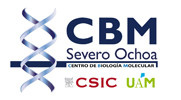Molecular mechanisms of Oligodendrocyte-Neuron interaction and myelin pathologies
Prof. Beatriz Cubelos Alvarez. Profesora Titular. Departamento de Biología Molecular. UAM.
Prof. Juan Salvador Jiménez. Profesor Emérito. Departamento de Química Física Aplicada. UAM.
Prof. María José Benítez Moreno. Profesora Titular. Departamento de Química Física Aplicada. UAM.
Prof. Mª José Pérez Álvarez. Profesora Titular. Departamento de Biología. UAM.
In our laboratory we study the neurological component of demyelinating pathologies and investigate the molecular mechanisms responsible for the processes of myelination in the Central Nervous System (CNS). Adequate myelination is essential for the correct transmission of the nerve impulse. In the CNS, oligodendrocytes (OLs) are the responsible cells for myelination of neuronal axons, through a complex process that requires multiple cellular interactions. In the absence of a correct myelination, diseases such as Multiple Sclerosis or leukodystrophies appear, currently orphans of an effective treatment. The possibility of generating therapies based on the neurological component of these diseases could stimulate the regeneration of new oligodendrocytes or increase the capacity of the remaining set of oligodendrocytes to produce more myelin and reestablish correct myelination. Our group has demonstrated the importance of the GTPases R-Ras1 and R-Ras2, essential proteins in the differentiation and survival of OLs. Moreover, we have described the relevance of their presence for the maintenance of energetic homeostasis and for the correct functioning of the nerve impulse transmission. Models lacking R-Ras1 and/or R-Ras2 faithfully reproduce the symptomatological characteristics of myelin diseases and could be used as models for the development of new treatments based on the neurological component.


